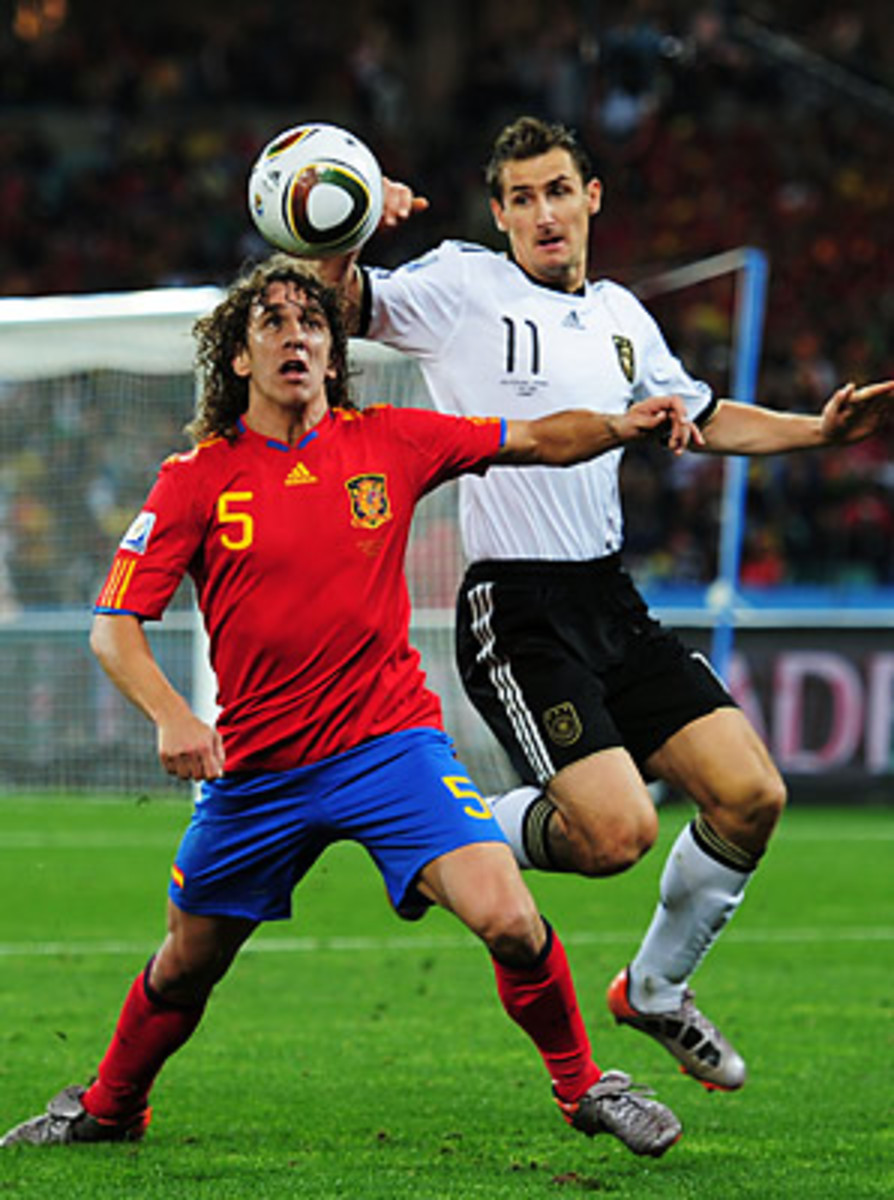Germany admits Spain's superiority
DURBAN, South Africa -- "A great compliment to Spain and their manager, they have the best and most harmonious team," was the second thing Joachim Löw said after expressing his disappointment at Germany's 1-0 defeat in Durban. The 50-year-old Germany manager, usually so composed and elucidate in postmatch press conferences, really struggled to explain Spain's near-total dominance over the 90 minutes. "It's hard to put your finger on it," he said. "We didn't play our normal game today, we were a bit inhibited and couldn't quite snap out of it."
Before his inner eye, the game was beginning to play out again. Sadly, the outcome was still the same. "We defended quite well today but didn't have the right 'transitional speed' between defense and attack, we also lost the balls quite early," he said. Löw also conceded that Germany found it difficult to live with Spain's high pressing. "It's okay to boot it out sometime (when you have nowhere else to go). The bigger problem was us losing the ball again far too quickly."
Captain Philipp Lahm, too, spoke of "a lack of conviction going forward," but in truth, it's difficult to show conviction when you're being asphyxiated. Germany was never able to escape the red cage the Spaniards built for them just outside their own box, didn't enjoy enough possession and consequently spent "a lot of time chasing the ball" (Bastian Schweinsteiger). "And once we had it, we were too tired to do anything with it," said Miroslav Klose, who will get another chance to break Ronaldo's World Cup scoring record against Uruguay on Saturday. It wasn't much of a consolation though.
A more detailed postmortem will show that "[Thomas] Müller's runs behind the defense would have done [Germany] good" said Löw on Wednesday night; that replacement Piotr Trochowski didn't quite do enough to warrant his inclusion and that two center backs who can actually take the ball out of defense would have been very useful as well. Also a big factor: Mesut Özil was clearly running on empty and unable to throw any spanners into the Spanish passing machine.
After a few minutes on the stage, Löw had found the main reason for the difference in class. "Spain are the best side in the world because they have played together with virtually the same lineup for two, three years", he noted. "We have played together for six, seven weeks." In other words, Vicente del Bosque's team, by far the best-functioning outfit that the young, new Germany came up against in South Africa, exposed what most Germans always knew deep down: for all their brilliance, they weren't quite there yet.
"After the game is before the game" the great sage of German football Sepp Herberger once said. It's a truism that doesn't ring true when it comes to the most superfluous game in international football, however: the third place playoff in the World Cup. Löw said Germany would take the match seriously but the real game will take place in the corridors of the Velmore Grand hotel in Centurion and the German FA HQ in Frankfurt in the next few weeks and months regarding Löw's contract situation (his current deal expired during the tournament). The outcome should be a given: neither Löw nor the FA have any credible alternative to renewing their vows. This is not to say that the process won't be messy, though. The future of general manager Oliver Bierhoff needs to be resolved and then there's also the thorny issue of Michael Ballack and the German captaincy (incumbent Lahm has stated his desire to keep it).
On the whole, though, Germany and Löw can be proud of what they have achieved and won't feel too depressed after losing against a side who played at the very cusp of perfection. Franz Beckenbauer, in his own, inimitable way, summed it up best: "There's no reason to feel sad," he said. "The team has played a wonderful tournament".






